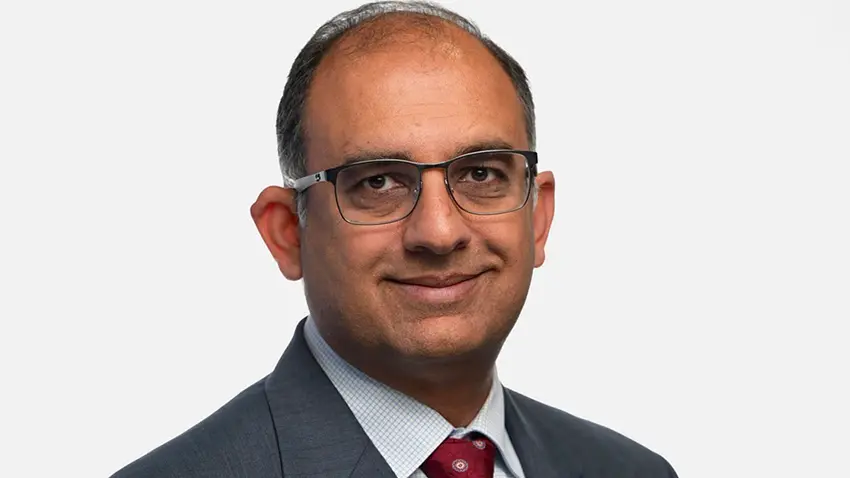Nirav Pandya is an experienced executive and management consultant who has built a career around helping organisations grow, improve, and achieve lasting value.
He is the Founder and Principal of Fulcrum Consulting, where he partners with companies in manufacturing, defence, and technology to deliver measurable improvements in performance.
His track record speaks clearly. He has advised firms that tripled sales in just 18 months, improved throughput by more than 50% without hiring extra staff, and increased sales multiples by 2.5 through stronger profitability, streamlined operations, and reduced risk. His approach combines hard data with hands-on leadership.
Before launching Fulcrum Consulting, Nirav was President and CEO of Orion Technologies. Under his leadership, Orion grew from a $1 million start-up into a $50 million company recognised for both rapid growth and workplace excellence. Earlier in his career, he helped drive ICx Imaging Systems through major revenue expansion, positioning the company for a successful IPO.
Along the way, Nirav Pandya and his teams have earned recognition including Inc. 5000 honours, Deloitte’s Fast 500, and Business Leader of the Year awards. These achievements highlight his ability to scale businesses while keeping them resilient and ready for the future.
Nirav is known for his clear vision, operational expertise, and authentic style of leadership. He excels at building scalable infrastructures, guiding high-performing teams, and preparing companies for long-term success or acquisition. His career shows how strategy and execution, when aligned, can transform potential into measurable results.
Q&A:
Interviewer: Nirav, you’ve built a career around transforming companies. Can you take us back to the beginning of that journey?
Nirav Pandya: I started out working with companies that were at key turning points. Early in my career at ICx Imaging Systems, I helped guide the business through a period of rapid revenue growth. It was a crash course in scaling operations and preparing for the scrutiny of the public markets. That experience taught me how to balance short-term gains with the discipline needed for a sustainable model.
Interviewer: How did that experience shape your move into leading Orion Technologies?
Pandya: When I joined Orion, it was a $1 million start-up with potential but little structure. My focus was on building the foundations—processes, teams, and systems—that could support growth. We grew it into a $50 million company recognised not only for performance but for workplace excellence. One of the things I’m proudest of is that we achieved growth without losing sight of culture. People wanted to be there, and that made scaling possible.
Interviewer: What was the most challenging part of scaling Orion so quickly?
Pandya: The hardest part was resisting the temptation to just throw more people at every problem. Growth can create chaos if you don’t build scalable systems. We improved throughput by over 50% without adding headcount. That meant looking at bottlenecks, redesigning processes, and making sure teams had the right tools. Efficiency, not expansion for its own sake, was the key.
Interviewer: After Orion, you went on to launch Fulcrum Consulting. What drove that decision?
Pandya: I wanted to take what I’d learnt and apply it across different industries. With Fulcrum, I work with manufacturing, defence, and technology companies. The goal is the same: measurable improvements. For example, one client tripled sales in 18 months. Another increased their sales multiple by 2.5 after we streamlined operations and boosted margins. These outcomes don’t come from theory; they come from rolling up your sleeves and working alongside the teams.
Interviewer: You’ve often been described as both strategic and hands-on. How do you balance those two sides?
Pandya: Strategy without execution is just a document. Execution without strategy is wasted effort. I’ve always believed you need both. I’ll sit in the boardroom mapping long-term plans, but I’ll also spend time on the factory floor talking to employees. You learn as much from those conversations as you do from the spreadsheets. That balance—big picture and detail—is what drives results.
Interviewer: Recognition has followed you throughout your career—Inc. 5000, Deloitte’s Fast 500, Business Leader of the Year. What do those milestones mean to you?
Pandya: They’re nice markers, but they’re not the end goal. To me, the real achievement is seeing a company become stronger and more resilient. At Orion, for example, the recognition for workplace excellence meant as much as the growth numbers. It told me we’d built something sustainable. Awards reflect what the teams have accomplished together, not just what I’ve done.
Interviewer: From your perspective, what do companies often get wrong about growth?
Pandya: Many chase growth without addressing the underlying structure. They hire quickly, spend aggressively, and then struggle when the systems can’t handle the pressure. Growth should always come with scalability. Another mistake is ignoring risk. Investors pay for predictability. If you don’t manage risk early, you’ll pay for it later—either in reduced multiples or in missed opportunities.
Interviewer: What do you see as the common thread across your career so far?
Pandya: Transformation. Whether it was preparing ICx for an IPO, scaling Orion into a national leader, or guiding Fulcrum clients through rapid change, the constant has been helping organisations unlock potential they didn’t know they had. The tools change—sometimes it’s sales strategy, sometimes operations, sometimes culture—but the mission is the same: build companies that last.
Interviewer: Looking ahead, what continues to drive you?
Pandya: Curiosity and impact. I like working with organisations at turning points because that’s where you can make the biggest difference. Every company has untapped value. The challenge is finding it and unlocking it in a way that delivers not just quick wins but long-term success. That’s what keeps me engaged—seeing potential turn into measurable results.


